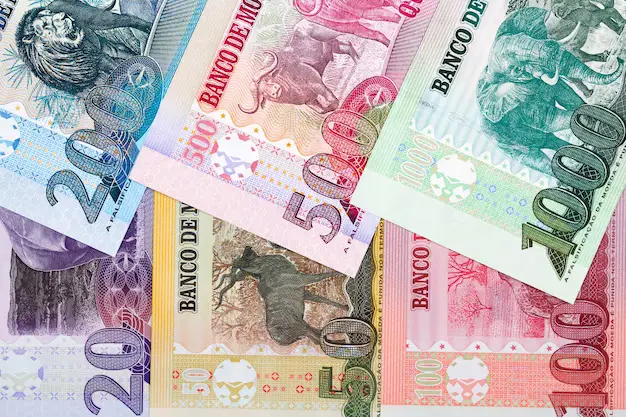In 2024, Mozambique’s debt service costs are projected to increase by 18%, reaching over 116.631 billion meticais (approximately $1.712 billion).
This information comes from the Mozambican government’s recent report. The 2024 Economic and Social Plan and State Budget outline this increase.
The budget is currently under discussion in parliament. The debt service costs will account for 7.6% of Mozambique’s expected Gross Domestic Product (GDP).
For 2023, the government predicts debt service costs to be 98.817 billion meticais, or $1.451 billion.
This is about 7.5% of the forecasted GDP. In the previous year, these costs were 72.363 million meticais, or $1.063 billion, equaling 6.1% of the GDP.
The upcoming increase is tied to the External Debt Restructuring Agreement. This agreement entails considerable capital amortizations due in 2024.
Additionally, changes in the external debt interest rate for bonds maturing in 2024 are expected.
More than half of Mozambique’s public debt service costs next year will be for capital repayments.

These are estimated at 60.915 billion meticais, or $894.7 million. Interest payments will likely be around 55.716 billion meticais, or $818.4 million.
The Bank of Mozambique’s governor highlighted the pressure on public spending. He pointed out challenges like weak revenue collection and limited external financing.
These factors are increasing fiscal risk and domestic debt. He noted that increased spending is mainly due to wage reform and electoral expenses.
For example, domestic public debt, at 275 billion meticais, or $4.080 billion in 2022, rose by 19% in the last 10 months to 327 billion meticais, or $4.852 billion.
Background
This projected rise in Mozambique’s debt service costs is a significant financial challenge for the country.
It reflects the broader economic pressures faced by many developing nations. The increase is particularly notable given Mozambique’s ongoing efforts to manage its debt sustainably.
Historically, Mozambique has grappled with high debt levels. This has often limited its ability to invest in key developmental areas. The current situation indicates a continuing trend of fiscal strain.
The External Debt Restructuring Agreement plays a crucial role in this scenario. It is a key part of Mozambique’s strategy to manage and reduce its debt burden.
However, the immediate impact of this agreement includes increased repayment obligations.
The rise in debt service costs could impact Mozambique’s public spending. This includes essential services and developmental projects.
It highlights the delicate balance between debt management and maintaining economic growth.
The increase in domestic public debt noted by the Bank of Mozambique’s governor is also a concern.
It suggests rising internal financial pressures. This may affect the country’s overall economic stability.
Globally, similar trends are seen in other developing countries. They are managing increased debt service costs amid limited revenue generation and external funding.
Mozambique’s situation provides insights into the challenges faced by such economies.
The government’s response to these challenges will be crucial. Effective management of this situation is key to ensuring sustainable economic growth.
Mozambique’s approach could offer lessons for other countries in similar situations.
Overall, these developments in Mozambique’s debt dynamics will be important to monitor. They have implications for the country’s economic health and development trajectory.

